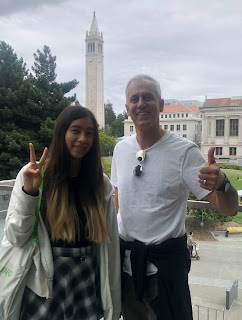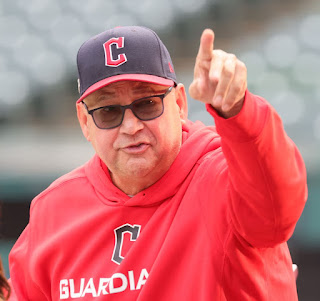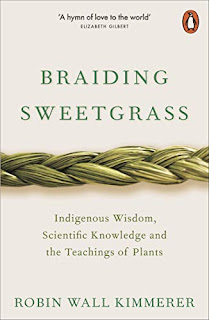"If one wanted to crush and destroy a man entirely, to mete out to him the most terrible punishment, all one would have to do would be to make him do work that was completely and utterly devoid of usefulness and meaning."
Midway through It's OK to Be Angry About Capitalism (2023), Bernie Sanders quotes Fyodor Dostoyevski, and I could not agree more. If meaningless work overtakes us, what will become of us? Our souls?
But meaningless work, and not enough meaningful jobs or jobs that involve every waking moment and are soul-crushing are only part of the equation. With our unprecedented wealth gap, the development of AI and political and social division, the United States is in a crisis of sorts. In his book, Bernie lays out the problems and offers solutions.
In order for societies to function, we need workers in numerous and various roles. In our uber-capitalist system, for at least 40 years, workers in the United States have been making less wages, asked to work longer hours and have continually been getting the squeeze.
Bernie (with author John Nichols) outlines this unfair, and immoral, reality is his book, and he does it in a clear, logical way that should appeal to both Democrats and Republicans. Bernie is the longest serving independent in Congressional history and although he has campaigned for the Democratic Party presidential nomination, should appeal to any worker or pro-worker view who takes the time to understand his views.
The United States is facing an economic systemic crisis in which 735 billionaires exist while 60 percent of Americans live paycheck to paycheck. The billionaire system absolutely, positively does not work, and Bernie explains this well. But he is clear. Don't hate the individuals who manipulated the system to become billionaires. Question the system that made it possible, and now let's go to work fixing it.
Unfortunately in the corporate media, Bernie is portrayed as a "leftist" or "socialist" or maybe even a weirdo to some. In reality, though, his beliefs only are extreme from a corporate point of view, and, unfortunately, the average person only sees politics and political "issues" through a corporate lens.
Facebook — owned by a billionaire. Twitter (or X) — owned by a billionaire. Fox News, CNN, the networks, newspapers — billionaire conglomerates. Ninety percent of all U.S. media is owned by eight conglomerates.
That corporate media, and the Democratic National Committee, cringe at Bernie's anti-corporate, anti-billionaire message, and, truthfully, Democrats and Republicans have been heads and tails on the same corporate coin for at least 40 years. I believe Bernie is 100 percent correct, that the typical American is fed up with that tail-wagging-the-dog corporate system, and we have to move away from it and closer to an actual democracy.
It's OK to Be Angry About Capitalism walks through why Bernie dropped out of the 2020 race in an all-hands-on-deck approach to defeat Donald Trump. He also outlines his Medicare for All plan that would be phased in through five years, and he interviews Finland's of education Li Andersson and outlines what U.S. schools could learn apply from Finland. All of that was excellent.
But, to me, the two absolute best chapters were titled "Billionaires Should Not Exist" and "Corporate Media Is Undermining Democracy."
With the billionaires, we truly are living in an oligarchy. Frequently, many of these oligarchs contribute to both parties in order to retain influence regardless of who wins an election. How is that a democracy?
The tax code hits wages relatively hard, but assets aren't taxed. How is that fair? Not only do many corporations pay zero in tax, but Congress often sends money to select corporations, including Amazon, in "rescue" bills. Totally ridiculous.
I remember hearing Mark Cuban express how wrong Elizabeth Warren was to criticize him and billionaires. Eventually, though, Cuban said one solution for taxing billionaires is to hit them with transaction taxes. When he sold Broadcast.com to Yahoo for $5.7 billion in 1999, why not tax a billion or two?
OK. That idea is a start. But I say go further. There has got to be a way to balance the power, and net worths, of billionaires. Can't these uber-capitalists at least be forced to cash out some of their stock with a yearly tax bill that resembles what the average worker pays in taxes?
Sadly, this wealth-gap crisis hardly is addressed in media or is contorted to something it isn't. My theory is that the average American has been raised on TV or the phone and is used to the constant drumbeat of corporate messages, brought to you be FedEx and GMC and Coca-Cola.
We don't even see the ads any more. We're numb to them. It's a billionaire, corporate world, and we other 331.9 million Americans are just living in it.
At the bare minimum, Bernie's book brings up modern issues that need more attention. But perhaps the book also allowed me to update my political operating system.
Older generations sometimes snicker at younger ones for being politically disenchanted, which I believe describes most — if not all — of the United States. Knowledge is power, and to understand that Democrats and Republicans alike have been corporate shills for at least 40 years clearly shows us why we're going to witness yet another presidential election nobody wants. How is that democracy?





































